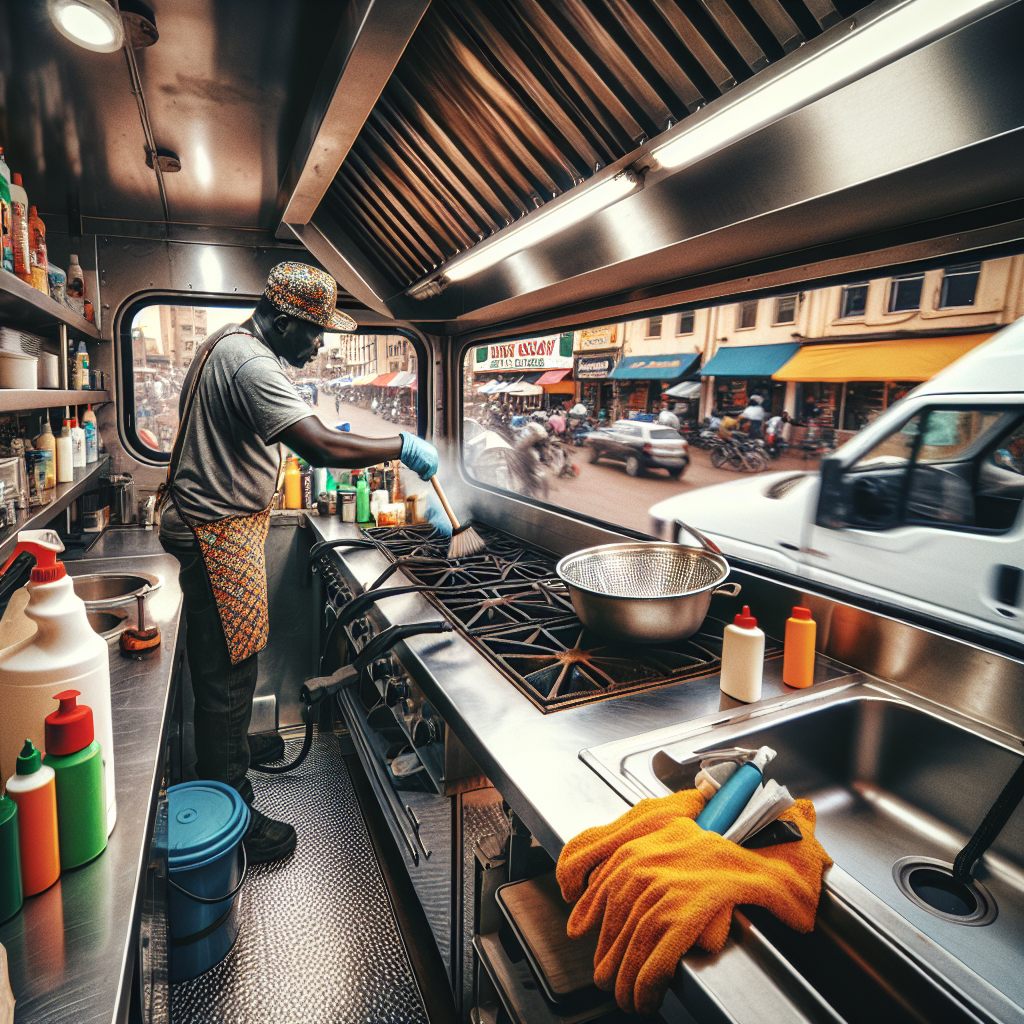Essential Hood Cleaning Tips Every Food Truck Operator Should Know
The Unique World of Food Truck Hood Cleaning
When you think of food trucks, delicious street food and the joy of dining al fresco often come to mind. However, behind the scenes of every mouth-watering taco and gourmet burger lies the critical aspect of hood cleaning. Unlike stationary restaurants, food trucks present unique challenges in restaurant hood cleaning. Here’s how operators can keep their mobile kitchens safe and clean.
Why is Hood Cleaning Crucial for Food Trucks?
Running a food truck offers flexibility and freedom but also entails adhering to rigorous safety standards. The heart of any kitchen, mobile or not, is the exhaust hood. It’s an essential component in ensuring proper ventilation by removing smoke, grease, and odors. If neglected, it can lead to fire hazards, costly repairs, and health violations. Commercial kitchen hood cleaning in a food truck context is not just about compliance; it’s a safeguard for your livelihood and customer safety.
Challenges in Food Truck Hood Cleaning
Unlike a traditional kitchen, space is a premium in food trucks. This compact size means grease buildup can happen faster. Additionally, food trucks operate in diverse environments, from windy city streets to serene parks, all of which can exacerbate clogging or damage to the exhaust system. The mobility factor also means that consistent cleaning schedules might get interrupted, making routine checks essential.
Essential Hood Cleaning Tips for Food Truck Operators
- Schedule Regular Cleanings: In a fast-paced environment, scheduling might seem daunting. However, setting regular schedules for exhaust hood cleaning can prevent unexpected issues and ensure hygiene standards are met.
- Use the Right Cleaning Materials: Not all cleaning agents are suitable for stainless steel. Choose products specifically designed for kitchen hoods to avoid damage that could compromise efficiency.
- Inspect the Filters Regularly: The filters play a crucial role in trapping grease and should be a focal point in your cleaning routine. Clean or replace them periodically to maintain proper airflow.
- Understand the Local Regulations: Different cities have varying health regulations. For those operating in Denver, familiarize yourself with local laws on Denver hood cleaning to ensure compliance.
- Consider Professional Cleaning Services: While daily maintenance is essential, periodic professional help can prolong the life of your hood. Professionals have the tools and expertise to tackle even the toughest grease buildup.
DIY Hood Cleaning: A Step-by-Step Guide
Step 1: Power Down the System
Safety first! Ensure all appliances and the exhaust system are turned off before starting. This minimizes risk and prevents any electric mishaps.
Step 2: Disassemble Removable Parts
Most food truck hoods have removable parts, such as filters and grease traps. Carefully remove these components and soak them in a degreasing solution.
Step 3: Scrub Down Interior and Exterior
Using a non-abrasive brush and cleaning agent, scrub the interior and exterior surfaces of the hood. Pay special attention to corners and joints where grease tends to accumulate.
Step 4: Inspect the Ventilation System
Check the ductwork leading from the hood to ensure no obstructions or excessive grease buildup. If you notice anything amiss, it might be time to call in professionals.
Step 5: Reassemble and Test
Once everything is clean and dry, reassemble the hood and turn the system back on. Ensure everything is functioning smoothly and no parts are left loose or improperly placed.
How Often Should Food Truck Hoods Be Cleaned?
Consistency in commercial kitchen hood cleaning will rely on your cooking volume and types of cuisine. For example, if your menu involves frying or grilling, weekly cleanings might be necessary. It’s advisable to maintain a cleaning log, documenting each cleaning and inspection, so you’re always prepared for health inspections or any unexpected issues.
Embrace the Expertise
While these tips and practices offer a solid foundation, there’s no substitute for professional expertise, particularly for intricate cleaning tasks. For those based in Denver, there are many expert services available. Ensuring your Denver hood cleaning needs are met by professionals can not only save time but also ensure thorough cleaning and compliance with the latest regulations.
In conclusion, while food truck operation offers culinary entrepreneurs a flexible and dynamic venue, the kitchen’s heart, your hood, demands unwavering attention. Regular and efficient hood cleaning ensures that your mobile venture remains safe, sustainable, and savory for every customer waiting in line. Embrace these practices, and your food truck will not only meet regulatory standards but become a beacon of cleanliness and quality on wheels.







